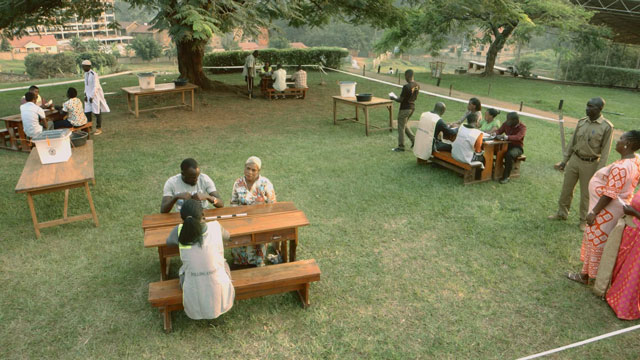
Citizens want real reforms not the cosmetic changes the Attorney General tabled five Bills before parliament
COMMENT | CRISPIN KAHERU | On 25 July, the Attorney General of Uganda, William Byaruhanga tabled five electoral reform Bills in Parliament. The Bills were: the Presidential Elections (Amendment) Bill No.17, 2019, the Parliamentary Elections (Amendment) Bill No.18, 2019, Electoral Commission (Amendment) Bill No. 19, 2019, Political Parties and Organisations (Amendment) Bill No. 20, 2019, and the Local Governments (Amendment) Bill No.21, 2019.
The amendments contained in the Bills are meant to provide for the time of filing and determination of petitions, the nature of evidence used in an electoral petition, the time for holding fresh elections, the use of technology, equal use of state owned media, restrictions around donations during election period, regulation of involvement of public officers in political campaigns, the role of the Attorney General in election petitions and timely enactment of relevant electoral legislation, as per the Supreme Court recommendations in the Presidential Election Petition No. 1 of 2016 (Amama Mbabazi Petition) among other aspects.
This happens to be the earliest that the country has seen amendments to electoral laws brought before Parliament – prior to a general election. Uganda’s next general election is scheduled for January/February 2021. The electoral reform Bills were tabled approximately a year and a half prior to the next general election polling day. It is easy to argue that this was comparatively early in as much as it would be valid to contend that it was technically late.
It was early in the sense that, in the past electoral cycles, government has tabled electoral reforms less than six (6) months to an election. At the launch of the strategic plan and the road map for 2020/2021 general elections on December 11, 2018, the Electoral Commission, envisaged that amendments to the electoral law would be completed before the end of the first quarter of 2019 – to pave way for the implementation of the roadmap based on a solid legislative framework.
Key exercises in preparation of the next general elections have already commenced. For instance, the demarcation of electoral areas and reorganisation of polling stations started on Sept.02. This important exercise is intended to identify and create electoral areas on one hand, as well as place voters in their rightful polling stations in their respective electoral area. These are quite significant exercises. For a voter, if you do not pay attention to these processes, you risk not knowing where you will be voting from in next election.
While the already on-going electoral exercises are critical, they would have made better meaning if they were conducted under a firm, well pre-determined legislative framework. Part of the uncertainty brewing around the country’s electoral operations can be explained by the absence of specific aspects in Uganda’s legal regime for election management.
For instance there is currently an ongoing exercise to demarcate electoral areas. However, there are also amendments in the Local Governments (Amendment) Bill No.21, 2019 that are aimed at reviewing population quotas for electoral areas such as cities, municipalities, divisions etc.
Therefore, good as it may be, the exercise of amending electoral laws that is currently underway is akin to setting or changing rules of a game when the game has already commenced. That is why it is, in fact, generally good practice to amend electoral laws immediately after an election.
 The Independent Uganda: You get the Truth we Pay the Price
The Independent Uganda: You get the Truth we Pay the Price


